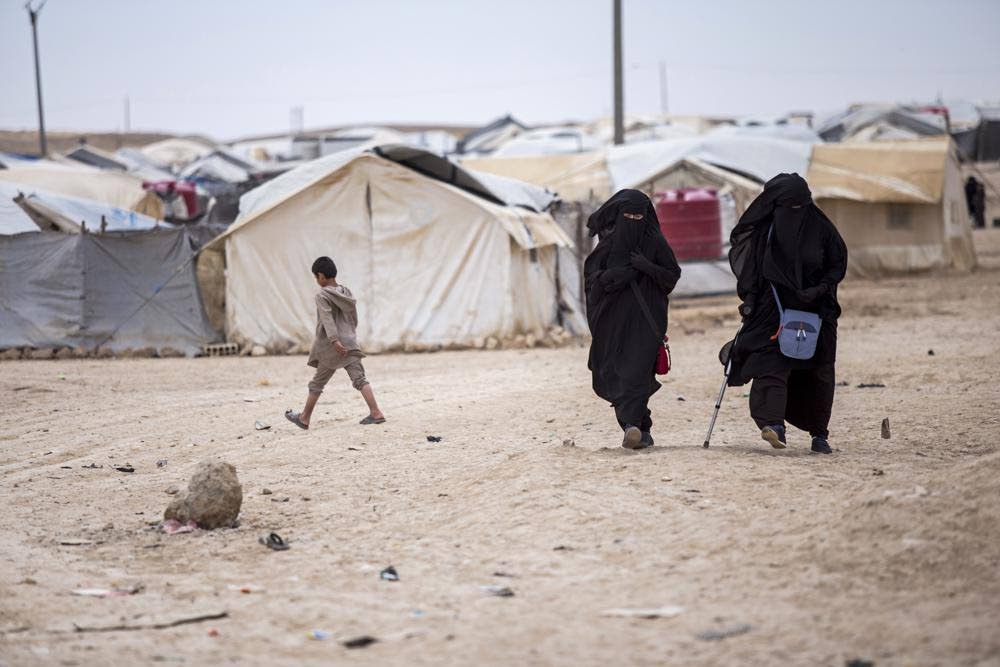Intelligence agency wary of Islamic radicalisation in Trinidad and Tobago

THE Strategic Services Agency (SSA) annual report 2021 said Trinidad and Tobago now faced a potential threat from terror actors which the SSA seemingly linked to sympathisers of local individuals who had become foreign terrorist fighters (FTFs) who are now detained in Syria and Iraq. The report was laid in the Senate on Tuesday, with SSA annual reports for 2019 and 2020.
"There are approximately 130 local foreign terrorist fighters (FTFs) detained in Syria and Iraq camps. Conflicting numbers are always forthcoming, given the restricted flow of information from these areas."
The report expected this issue to occupy the intelligence and immigration authorities, especially if fresh legislation was to allow for mass-repatriation.
"Given the decision made by the court in 2021, local sympathisers – inclusive of local, radicalised actors who advocate and legally challenge the State – could eventually become more disenchanted and hostile towards the state.
"Terror actors remain a serious threat to TT as they aim to spread radicalised philosophies through moral panic, and recruit otherwise disenchanted and easily susceptible persons.
"The recruitment of persons who exit or enter the prison system, illegal immigrants and others who are offspring of historically radical families, remain an ever-present threat."
The easy availability of illegal firearms could provide fertile ground for engaged threat actors, the report said.
"In conclusion, while the terror threat decreased, there are several persons who remain radicalised but possibly disillusioned. This combination relates to the decimation and non fulfilment of the ISIS agenda globally and the further compromise of the Al Qaeda and other terror groups.
"There remain several persons of radical leaning, who are either incarcerated or affiliated to incarcerated persons, and are motivated to attack the prison facilities, as well as other elements and persons attached to the national security apparatus.
"The local terror threat, though dormant, may see a resurgence as these actors may be galvanised by the various community leaders, possible FTF repatriations and the perception that the State is slow to recognise them and their concerns."
The 2020 SSA report reckoned that in 2020 the local terror threat was reduced as several radical individuals were preoccupied with facilitating repatriation of relatives detained in Syria and Iraq.
"Their strategy was multifaceted as several protagonists sought to influence the State through the use of social media, international observers and politicians. While the state did not surrender to pressures to repatriate nationals, this was partly facilitated by the closure of borders because of the covid19 pandemic.
"There may be increased pressure in 2021 pending covid19 mitigation efforts."
The report said about 100 alleged TT citizens were in Syrian and Iraqi camps for FTFs, including 15 males, 24 females and 63 children.
"It is anticipated that as desperation increases, sympathisers will seek to influence the governance structures by applying pressure legislatively and through alliances with pressure groups and other civil society associations.
"There is the expectation that some politicians seeking support, influential persons in the legal fraternity, as well as certain sympathetic business owners are likely to join the plea to the Government with the hope of providing the impetus for repatriation."
The SSA in 2020 said terror actors remained a serious threat in TT owing to their radical leanings.
"Their association with the criminal underworld and the use of the drug and ammunition trade to secure money to facilitate anti-state actions and behaviours will continue to attract the attention of law enforcement and intelligence. Recruitment also may become an issue for those in national security, as more disenfranchised youth are left behind with the closure of schools regarding covid19, reduction of legitimate employment and education opportunities.
"Radical extremism is therefore one of the other threats within the terror-related environment. Patterns of radical recruitment should therefore be observed."
Attorney Nafeesa Mohammed had in a Newsday story in September 2020 urged the repatriation of 21 women and 66 children.
"These women and children are displaced persons. They are victims. They are suffering and begging to come back home.”
Saying they had simply wished to live in a Muslim State, she had said, “But that has collapsed. It has crashed. There is no ISIS any more and none of us support any terrorist activities.”
The then attorney general Faris Al-Rawi had told Newsday in July 2020, “They didn’t leave on a holiday. They left for terrorism. They were killed in action in ISIS.
“Have you seen what ISIS did? Beheading people. Raping children. Raping women. You cannot, in a governmental position, look past something like that.
“The Muslim community has been massively in support that we stand against terrorism.”

Comments
"Intelligence agency wary of Islamic radicalisation in Trinidad and Tobago"